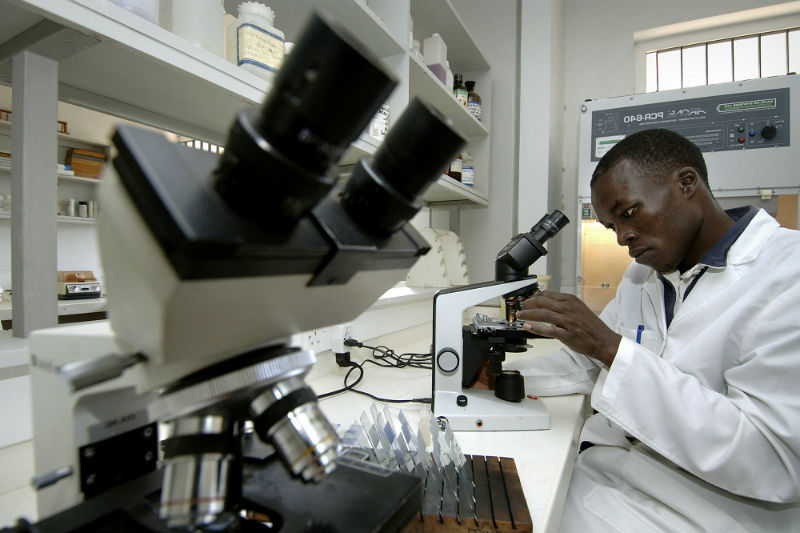By: Linda Nordling
Send to a friend
The details you provide on this page will not be used to send unsolicited email, and will not be sold to a 3rd party. See privacy policy.
The reboot of the Europe-Africa clinical trials alliance could make Africa invest in health R&D, writes Linda Nordling.
In 2010 in Mali’s capital Bamako, representatives from over two dozen African health ministries signed a ‘call for action’ urging their governments to allocate at least two per cent of health ministry budgets to research. [1]
The aim of the call was for African governments to take ownership of the research agenda, which at the time was viewed as too driven by international donor priorities.
Nearly a decade on, many people argue that donors’ influence over health research agendas in Africa remains too strong. And the two per cent goal is still a pipe dream.
There is no doubt that African countries have seen increased investment in health research. But with most of this increase coming from international donors, the question of who sets the research agenda remains.
Mechanisms matter
In 2008, after the Bamako meeting, critics condemned the lack of mechanisms in the call of action for its proposed implementation. [2]
But for countries looking for a way to fulfil their two per cent ambition, a reinvented Europe-Africa clinical trials programme offers a vehicle for doing so and for directing international funding towards national priorities.
“Many people argue that donors’ influence over health research agendas in Africa remains too strong.”
Linda Nordling
The first European & Developing Countries Clinical Trials Partnership (EDCTP) was launched in 2003 as a European response to the health crises caused by three poverty-related diseases: HIV/AIDS, tuberculosis and malaria.
Between its launch and 2014, when the programme ended, EDCTP funded 254 collaborative research projects between Africa and Europe to the tune of €378 million (about US$425 million, focusing on phase II and III clinical trials, according to the EDCTP.
A second programme — EDCTP2 — was launched in December 2014. So far the ten-year programme has secured almost US$115 million for calls for proposals launched in 2014 and 2015. Another round of calls for proposals are expected later this year.
The European Union has approved about US$767 million for EDCTP2 provided that additional member country and private sector contributions materialise as expected.
Restructured partnerships
The need for clinical research capacity development and project funding remains immense despite the large investments made to date through EDCTP, says the programme’s executive director, Michael Makanga.
The disease burden in Africa remains enormous, he says. There are natural differences between populations — how they respond to diseases and treatments — which are still poorly understood, and drug resistance is an emerging threat.
EDCTP2 has an expanded scope. Both in terms of diseases — in addition to the big three in the first programme, it addresses neglected infectious diseases — and the type of clinical research it funds. Whereas the first EDCTP focused on phase II and III clinical trials (efficacy studies), EDCTP2 funds phase I (human safety studies) and phase IV (monitoring interventions that have reached the market).
“There simply are no short cuts to taking back control of their continent’s health research agenda.”
Linda Nordling
Another innovation in EDCTP2 is the closer involvement and ownership of African participating countries. The 14 African member countries — Burkina Faso, Cameroon, Congo, Gabon, Gambia, Ghana, Mali, Mozambique, Niger, Senegal, South Africa, Tanzania, Uganda, and Zambia — now have representation and equal voting rights on the governance and implementation mechanisms of the programme, whereas in the first instalment the project was driven from Europe.
“This reflects a widespread conviction in the development community that development cannot be done through one-sided action or aid,” says Makanga. But while it gives African countries more power to influence the programme, it also places an expectation on them to pull more weight in investing in their health care systems and research, he adds.
Africa’s opportunity
The EDCTP2 African member countries have already committed to pay €200,000 each as a membership investment in the programme. While this may be a small contribution compared to the entire project budget, it is nevertheless significant for the countries involved.
But in order to fully exploit the opportunity offered them by the programme, African countries should invest more. They should use their EDCTP2 projects as catalysts for strengthening domestic health research.
History shows that scientifically at least, EDCTP funding can bring a lot of bang for its buck. A bibliometric evaluation published last year of clinical research papers in Europe and Africa found that between 2003 and 2011, EDCTP-associated papers related to HIV, tuberculosis and HIV-TB co-infection involving authors from Africa were cited around five times more than the world average. [3]
As with all other health research programmes targeting Africa, the challenge with EDCTP and its successor is making sure that investments are sustainable. In other words, that once the programme funding runs out, the gains made in terms of capacity building on the ground in Africa persist into the future.
Journalist Linda Nordling, based in Cape Town, South Africa, specialises in African science policy, education and development. She was the founding editor of Research Africa and writes for SciDev.Net, Nature and others.
This piece was produced by SciDev.Net’s Sub-Saharan Africa English desk.
References
[1] The Bamako call for action on health research (WHO, November 2008)
[2] Katherine Nightingale Bamako 'call to action' unites 69 countries on health research (SciDev.Net, 20 November 2008)
[3] European and African clinical research: A bibliometric analysis of publications within the scope of EDCTP2 2003-2011 (EDCTP, 24 August 2015)














